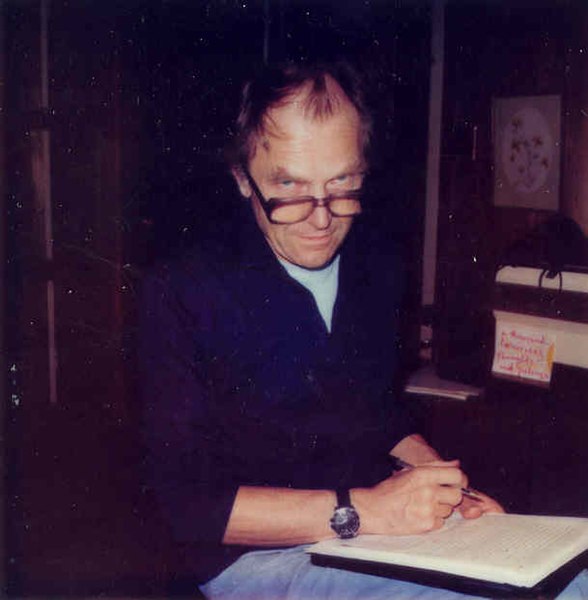
Paul Feyerabend, born on January 13, 1924, died on February 11, 1994, was a professor of philosophy at the University of California, Berkeley. His major works included, Against Method (1975), Science in a Free Society (1978), and Farewell to Reason (1987) a collection of already published papers. Feyerabend understood the history of science to reveal “anarchism” in scientific methodology, whereby discoveries are produced not through an adherence to any scientific methodology, but through the rejection of the prevailing wisdom and any established ways of doing science. Feyerabend argued in Against Method that any recourse to “method,” such as in the Aristotelian account of motion or Galileo’s heliocentric position, was rhetorical flourish. Like Thomas Kuhn but against Karl Popper, Feyerabend emphasized the socially constructed nature of scientific theories.
Against Method articulated the position of “epistemological anarchism” underscoring that the history of science revealed no useful or consistent methodological rules or general understanding of underlying logics of the growth of knowledge. So variable was scientific inquiry that the only generality produced through a proper view of its history and the only rule useful to future scientific endeavors was that in the pursuit of science (past and present,) “anything goes.” For Feyerabend, Karl Popper’s Critical Rationalism would, by mandating that all scientific theories admit validity or falsification through recourse to empirical evidence, inhibit the growth of science by placing undue and unrealistic limitations on theory. The goal of Against Method, Feyerabend later observed, was to free individuals from the philosophical “tyranny” of such concepts as “truth” and “objectivity.”
In reviews of the book, there was particular issue with Feyerabend’s association of scientific method with such anthropologically studied practices as witchcraft. Feyerabend, for his part, was dismayed at the inability of his reviewers to distinguish between his ironic statements, his playful jests, and his more systematic critique of Popper’s understanding of ‘good’ science through empirical verification. Feyerabend believed he had undermined the privileged position of science, particularly in its perceived superiority to “culture.” Since there was no such thing as a method to the best conclusion in science, “science” was not the path to certain knowledge. Nor do the products of science prove the goodness of its method, as the results of science depended more often than not on elements external to the practice of science.
“Science” and the work of scientific method was much closer to myth than the scientific practitioner was willing or able to admit. “Science” was “one of the many forms of thought that have been developed by man, and not necessarily the best.” Science as both a method and as a body of knowledge was ” noisy, and impudent, but it is inherently superior only for those who have already decided in favor of a certain ideology, or who have accepted it without ever having examined its advantages and its limits.” As science was indistinguishable from ideology, it was then a threat to the growth of democratic thought and politics. The future of democratic politics hinged on the separation of science and state power as well as the ability of the citizen to critique the pronouncements of “experts.”
The difficulty with Feyerabend is of course his “straw-man” conception of scientific inquiry and the scientific practitioner. Feyerabend’s account of epistemological anarchism tells us less about the history of science than it does about the inadequacies of Karl Popper’s conception of the history of science and his account of rationality. The difficulties begin multiplying when one then considers that Karl Popper’s account of scientific rationality had as much to do with Popper’s attempt to understand how the totalitarian regimes of Stalinism and National Socialism could be placed within the rationalist tradition of the West as with an attempt to understand the underlying mechanisms governing the growth of knowledge.
Feyerabend remains useful as a philosophic version of the social constructivism now ascendant among historians and sociologists of science. Feyerabend’s account also underscores how a narrative of the social dependency of the scientific fact, as well as more developed conceptions of “theory-laden observation,” is an “old-new” argument, much like totalitarianism in political science. As such, it is a challenge to historians and philosophers to move beyond the Manichean understanding of objectivity and relativism in the history of science and scientific inquiry.